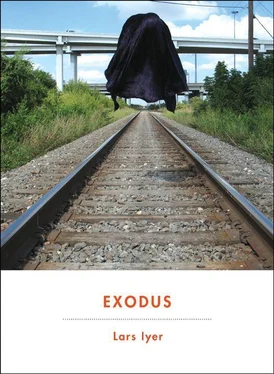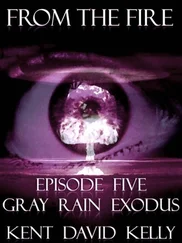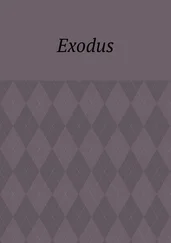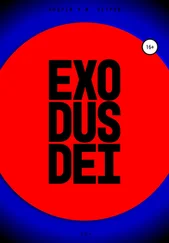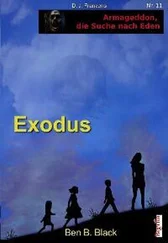And W. was going to let me speak! That was his role, he says. He was going to hear the suffering of the world as it resounded through me. He was going to decipher my bellowing. The Jew in him would redeem the Hindu in me, W. says. His Catholic atheism would redeem my Protestant atheism. He would bring fruit trees to my waste, and calm to my troubled waters …
But W. didn’t understand that it could be the other way round: that the Hindu in me could rise up against the Jew in him. That my Protestant atheism could wrestle his Catholic atheism to the ground! He didn’t see that I was on the same side as Apep, or Snavidka, or Gandarva, of the beasts of the desert and the beasts of the sea. He didn’t see that I was on the same side as the tohu vavohu , as welter and waste.
A study morning in Chetham’s Library. We examine the plaque commemorating Marx’s and Engels’ visit. It was here they realised that Marx was of ‘ superior analytical skill ’, the plaque says. Here, they decided that Marx should have as much time as he needed to research the overthrow of capitalism, and that Engels should work to support him.
Which one of us has ‘ superior analytical skill ’? W. wonders. Which one should give up his job and devote himself to research the overthrow of capitalism in our time? The answer is obvious, W. says: I should work to maintain him, as he researches contemporary problems of political economy. Imagine what he could accomplish, with all the time in the world! Imagine what he would write!
But sometimes, W. thinks that he should support me, allowing me to write my masterpiece, he says. Oh I won’t write a Capital , he knows that, W. says. I’ll barely manage to form a sentence. But my work will have a symptomatic value that will exceed anything he could write, W. says. Nothing to do with its content. It’s the fact of it that will be significant, W. says. Its monstrosity.
Of course, I could just print out the pages of my blog, and bind them between hard covers, W. says. That would be enough. But how could my blog be contained between hard covers? My blog is infinite, W. says. It’s an example of the bad infinite, as Hegel would call it. The spurious infinite … It just goes on and on …
Writing falling into itself, W. says. Lost in itself. Wandering its own corridors. Writing that has forgone the power of signification. Abyssal writing, in which the whole world is lost, and loses itself over and again … Writing that obliterates the very face of God …
W. snaps shut the copy of Josiah Thompson’s Kierkegaard that he found on the library shelves. We should shun Kierkegaard scholarship, he says. Kierkegaard scholarship can only make us afraid to do what we must do: remake Kierkegaard in our image. We must be free to dream, as he has dreamt, of a Kierkegaard who was happily married to Regine, W. says. Of a Kierkegaard who understood that the religious sphere is no higher than the ethical one, and that love for God is really love for the other person. Hasn’t W. dreamt of a Kierkegaard who never believed that Jesus was really the Messiah, or that messianism could ever be understood in terms of the coming of a particular person? Of a Kierkegaard who had faith only in the messianic epoch ?
His Kierkegaard is turned to the world, W. says. To politics! His is a Kierkegaard of the barricades, whose despair has caught fire, whose inwardness has become outwardness, whose religious faith has become ethical faith, has become political faith.
What is my Kierkegaard like, W. wonders. How many arms does he have? How many heads ? Does my Hindu Kierkegaard dance ? Hindu deities are always dancing, W. says.
The best Kierkegaard is the last Kierkegaard, W. says, the Kierkegaard who has curdled and lost all moderation. We, too, must let ourselves curdle and lose all moderation, W. says. Just as Kierkegaard called his opponent a glob of snot , we must call our opponents globs of snot , W. says. Just as Kierkegaard called the entirety of Christendom an invention of Satan , we must understand the entirety of Britain as an invention of Satan . Why don’t I see the extremes to which we must go?
Whitworth Park. Sometimes W. imagines we might walk our way to ideas, he says, as we wander through the trees. That to walk — if we walked far enough, hard enough — might also be to think . Or at the very least, to think about thinking. To have ideas about ideas, ideas about the ideas we might one day have.
But I’m no walker, that’s the problem, W. says. Not anymore. Was I ever a walker? W. wonders. Did he only imagine us walking together? Our walks to Cawsand, through Mount Edgcumbe, our walks to Whitley Bay, through Tynemouth and Cullercoats … He’s not sure anymore, W. says.
Of course, he’s a man of the promenade , W. says. He walks slowly, his torso held erect, looking all about him. He’s interested in the world, W. says, open to surprises! Not like me, who am always bent over, always looking at the space on the pavement immediately in front of my feet.
And I walk so quickly! W. says. What am I trying to escape? — ‘Yourself? Well, in that case, you’re doomed’. Once, he and Sal saw me from afar, a pedestrian among pedestrians. They saw me just as a stranger might see me: as a derelict, walking at a furious rate, head down, glowering. What’s wrong with that man? they wondered to each other. What’s his problem? And then they saw it was me, and they know all about my problems.
There’s a fundamental difference in our philosophy of walking , W. says. He is a Jewish walker, for whom every walk is an exodus, a leaving behind of the house of bondage. For the Jew, every walk is a political act, a determined effort to found a new community, to journey together away from the captivity of Egypt.
But I am a Hindu walker, W. says, for whom walking is not political, but only ever cosmological — ‘You set out to come back again! You go forth only to return!’
The Hindu walks in circles, W. says, as in the cycle of rebirth, or the turning of the Four Ages. But the Jew has only one direction. The Jewish walker is always walking towards Canaan.
Eid in Rusholme, on the curry mile. Barriers free the street from cars. Families walk out to celebrate the end of Ramadan. Women with hennaed hands. Men in white prayer robes. Children shouting and running. Is this what it will be like after the revolution?
He feels attuned to Indian pathos , W. says. To Indian joy ! The chaos! The colours! The smells! And everyone out, walking together. The people joyfully wandering in the streets. He thinks of what he’s read about Ghandi’s Indian revolution. About the Quit India movement. About Non-Cooperation . Didn’t Ghandi bind the Indians into a single, interwoven community? Didn’t he mobilise Hindus and Muslims alike — and the Sikhs, the Jains, taking no heed of old enmities …?
He’s always understood me to be a kind of Bartleby of politics, W. says. I would prefer not to : that’s what my indifference to social questions amounts to. Or, better: Fuck off, I’m eating .
I’m antisocial : that much is clear, W. says. Reclusive . He’s seen the expression on my face during long conference presentations. He’s seen the wild desire for freedom that burns in my eyes. I want to leap over the walls! To bellow! To scream! And doesn’t he want to escape with me, a whelk on the side of a whale? He remembers our great conference break-outs, W. says. To Titisee, from Freiburg University, paddling out onto the lake. To the bar at Five Points, in Nashville, from Vanderbilt University, demanding Plymouth Gin. To the Rendezvous Barbecue , from the University of Memphis, wanting only the finest ribs … Outside! I cried, W. recalls. I want to breathe! , I cried. Air! I bellowed. He loved me in those moments, W. says. Everything that was good and noble in me shined forth.
Читать дальше
